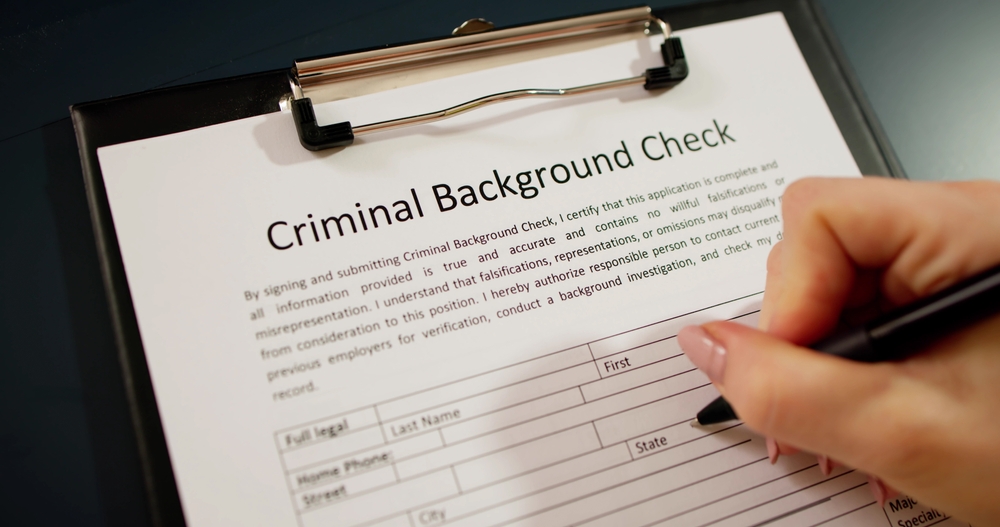
Have you been charged with a misdemeanor and wish to know how long it will remain on your record? In Texas, a misdemeanor conviction stays on a person’s criminal record indefinitely unless the court expunges it.
However, some misdemeanors may qualify for non-disclosure, which restricts access to the conviction for certain entities and individuals.
If you are facing misdemeanor charges or currently have a record, collaborating with a reputable Dallas criminal defense lawyer could be beneficial for you to confirm what legal avenues you may have.
Explore the frequently asked questions from a law firm with over 30 years of experience to discover if a misdemeanor can be removed from your record in Texas.
- What Does a Misdemeanor Consist of in Texas?
- Why Do Misdemeanors Stay on Your Record?
- Public Safety
- Sentencing Considerations
- Can a Misdemeanor Be Expunged From Your Record?
- What Is Non-Disclosure and How Does It Differ From Expungement?
- How to Pursue Expungement or Non-Disclosure
- Is It Necessary to Get a Lawyer to Have a Misdemeanor Removed From Your Record?
What does a Misdemeanor Consist of in Texas?
A misdemeanor is a criminal offense that is less severe than a felony. In Texas, misdemeanors are categorized into three classes:
- A Class A Misdemeanor is punishable by up to one year in jail and/or a fine of up to $4,000.
- A Class B Misdemeanor is punishable by up to 180 days in jail and/or a fine of up to $2,000.
- A Class C Misdemeanor will typically result in a fine with no jail time.
While misdemeanors are less serious than felonies, they can still have lasting repercussions on your life. The assistance of a qualified misdemeanor attorney in Dallas may help you avoid some of the harsh penalties of misdemeanors altogether.
Why do Misdemeanors Stay on Your Record?
Unlike felonies, which can sometimes be eligible for automatic expungement after a certain period, misdemeanors do not have a built-in expiration date.
According to the Texas Department of Public Safety (DPS), a misdemeanor conviction will remain part of your public record unless you pursue a legal process to have it removed. Why? Key reasons include:
Public Safety
Keeping a record of misdemeanors helps law enforcement agencies and the justice system assess an individual’s criminal history and make informed decisions regarding public safety. It allows them to identify patterns of behavior and assess the potential risk an individual may pose to society.
Sentencing Considerations
Misdemeanor convictions can impact future sentencing if an individual commits subsequent offenses. Many jurisdictions have laws that consider prior convictions when determining the severity of punishment for repeat offenders. The presence of prior misdemeanors on a person’s record can result in enhanced penalties for subsequent offenses.
Can a Misdemeanor Be Expunged from Your Record?
Yes, a misdemeanor can be expunged off of your record under certain circumstances. Expungement is the legal process of erasing a criminal record.
If your misdemeanor qualifies for expungement, it will be as if the offense never occurred, and it will no longer stay on your record or appear in background checks.
In Texas, certain conditions must be met for a misdemeanor to be eligible for expungement:
- You were acquitted of the charges.
- The charges were dismissed.
- You completed a pretrial diversion program.
- The statute of limitations for the offense has expired.
What Is Non-Disclosure and How does It Differ from Expungement?
Non-disclosure, on the other hand, does not erase the misdemeanor from your record but limits who can access it. If your misdemeanor is eligible for non-disclosure, certain entities, such as private employers, will not be able to see the conviction. However, law enforcement and specific government agencies may still access the record.
To qualify for non-disclosure, you generally must meet the following criteria:
- You must have completed your sentence, including probation.
- You cannot have been convicted of any other offenses during the waiting period.
- The misdemeanor must not involve certain serious offenses, such as family violence.
In either case, seeking the help of a legal professional will help you determine if you meet the criteria for expungement or non-disclosure.

How to Pursue Expungement or Non-Disclosure
The steps to expunge a misdemeanor so that it does not stay on your record indefinitely can be an uphill battle. You may need the trusted guidance of a Dallas expunction and non-disclosure lawyer to ensure that your case is being handled fairly and your rights are fully protected.
- Determine Eligibility: Review the criteria for expungement to see if your misdemeanor qualifies.
- Obtain Necessary Documents: Gather all relevant court documents, including the judgment and any evidence of completion of sentences.
- File a Petition: Submit a petition for expungement to the court in the county where you were convicted.
- Attend the Hearing: You may be required to attend a court hearing, at which a judge will decide whether to grant the expungement.
- Notify Relevant Agencies: If granted, you must ensure that all relevant law enforcement and government agencies are notified to remove the records.
The process to seek non-disclosure is similar but requires a few different steps, such as:
- Check Eligibility: Ensure that your misdemeanor meets the criteria for non-disclosure.
- Gather Documentation: Collect documentation that proves you have completed your sentence and met all requirements.
- File a Petition: Submit a petition for non-disclosure to the appropriate court.
- Hearing Process: Attend a hearing where a judge will review your case and decide on the non-disclosure request.
- Follow Up: Ensure that the necessary agencies update their records to reflect the non-disclosure order.

Is It Necessary to Get a Lawyer to Have a Misdemeanor Removed From Your Record?
Misdemeanors can stay on your record for a long time. They have the ability to impact prospective employment opportunities, housing potential, and more.
While not required, handling the nuances of a misdemeanor on your record is best handled with a qualified Dallas criminal defense attorney.
The Law Office of Randall B. Isenberg has certified criminal defense lawyers with extensive experience in having misdemeanors expunged or moved to non-disclosure in order to safeguard your future.
If your situation could benefit from our legal help, contact us immediately to schedule a free consultation session. We’d love to help you.











